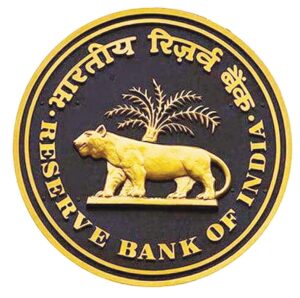Published on: April 1, 2022
RESERVE BANK OF INDIA
RESERVE BANK OF INDIA
NEWS
Reserve Bank of India celebrates its annual establishment day
R B I
- Central institution of the country that manages all major monetary policies of India and handles economic stability and growth
- Established on April 1, 1935, in accordance with the provisions of the Reserve Bank of India Act, 1934 based on the recommendation of Hilton Young Commission Report (1926) with a share capital of Rs. 5 crores
- Central Office of the Reserve Bank was initially established in Kolkata but was permanently moved to Mumbai in 1937
- Acts as the representative of the Government in the International Monetary Fund and represents the membership of India
- Zonal offices: New Delhi for North, Chennai for South, Kolkata for East, and Mumbai for West
- Reports – Financial Stability Report; Monetary Policy Report; Report on Financial Review
- Governed by a central board of directors. The board is appointed by the Government of India in keeping with the Reserve Bank of India Act. They are appointed/nominated for a period of four years
- Role
- The central bank issues and regulates currency notes.
- It keeps reserves with a view to securing monetary stability and is called banker to banks.
- The RBI plays a vital role in economic growth of the country and maintaining price stability.
- Monetary Policy of the Country: The RBI has been tasked to have a monetary policy framework to meet the challenges of the economy and to maintain price stability while keeping in mind the objective of growth.
- Inflation control: The RBI has targeted to keep the mid-term inflation at 4 four percent (+/- 2 percent).
- Decides benchmark interest rate: A six-member Monetary Policy Committee, headed by RBI Governor, decides the benchmark repo rate.
- Government’s banker: RBI acts as a banker for both the central as well as state governments. It sells and purchases government securities on their behalf.
- Regulator of Foreign Exchange: Foreign Exchange Management Act (“FEMA”) envisages that RBI will have a key role in management of foreign exchange.
- The central bank plays a key role in creating financial awareness among the masses.
- It also supervises if the banks and other financial institutions are doing the job assigned to them regarding financial inclusion.

